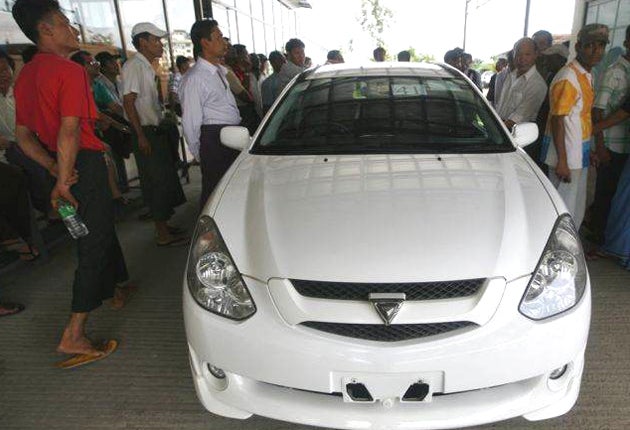Ethical investors pressure Toyota into pulling out of Burma

An affiliate of the car manufacturer Toyota has been forced to pull out of a joint venture it operated with the military regime in Burma after pressure from "ethical investors".
In the latest of a series of examples underlining the leverage of investors over social issues, the Toyota affiliate Toyota Tsusho Corporation (TTC) said it had sold off its stake in a vehicle-producing operation in Burma. The decision came after Toyota was pressured by a number of US-based investment funds, among them Trillium Asset Management and Domini Social Investments, to cease all activities there.
"We commend Toyota and the role it played in persuading its affiliate to reconsider its ties to the Burmese military rulers. As long as human suffering persists in Burma at the hands of the junta, companies cannot ignore their responsibility to ensure their or their affiliate operations do not aid the regime's offences," said Susan Baker, a Trillium analyst, who studies the impact of environmental and social factors upon investments. "Any link to building vehicles to aid the military government's misrule and brutal suppression of its own people raises moral and reputational issues that present risks to the long-term value of the Toyota brand."
The TTC is Toyota's trading arm, in which it holds a 20 per cent stake. The joint venture, known as Myanmar Suzuki Motor and which also involved Suzuki, produced trucks, cars and motorcycles. The value of TTC's stake in the project is unclear. Activists say the Burmese authorities strictly control the market for vehicles, with only the wealthy and those with military connections able to buy them. Toyota said its affiliate had been seeking to sell its stake in the joint venture since 2008 and had only received the required formal approval from the Burmese authorities this summer. It is unclear who bought the TTC shares.
A spokeswoman for Toyota's North American operation said: "TTC had, at their own business judgement as an independent company, made all necessary board decisions and entered into agreements to completely withdraw from all business dealings with its Burmese joint venture company in 2008... No other Toyota affiliate has any business, direct or indirect, with the Burmese government, to our knowledge."
But Shin Furuya, an analyst with Domini, said while Toyota may have sold its stake in the joint venture with the Burmese authorities, it continued to be involved in agricultural and garment-producing projects in the country. He said Domini had consistently excluded Toyota from its mutual fund portfolios, partly due to its involvement in Burma. "Toyota needs to continue to address these concerns, whether the particular operations have direct business ties with the military regime or not. All companies operating in Burma need to review their relationships with their trading partners and carefully consider whether their company's operations could directly or indirectly contribute to human rights violations."
News of Toyota's move, first revealed by the online International Business Times, comes weeks before Burma is to hold controversial elections. The authorities say the poll will help move the country towards full democracy, but most analysts suggest it will cement the position of the military. Burma's leading opposition figure, Aung San Suu Kyi, remains under house arrest and unable to participate.
Earlier this year, the investment wing of the Church of England sold a £3.8m stake in Vedanta Resources, the British-based mining company, that was seeking to mine for aluminium in tribal lands in India.
Join our commenting forum
Join thought-provoking conversations, follow other Independent readers and see their replies
Comments
Bookmark popover
Removed from bookmarks